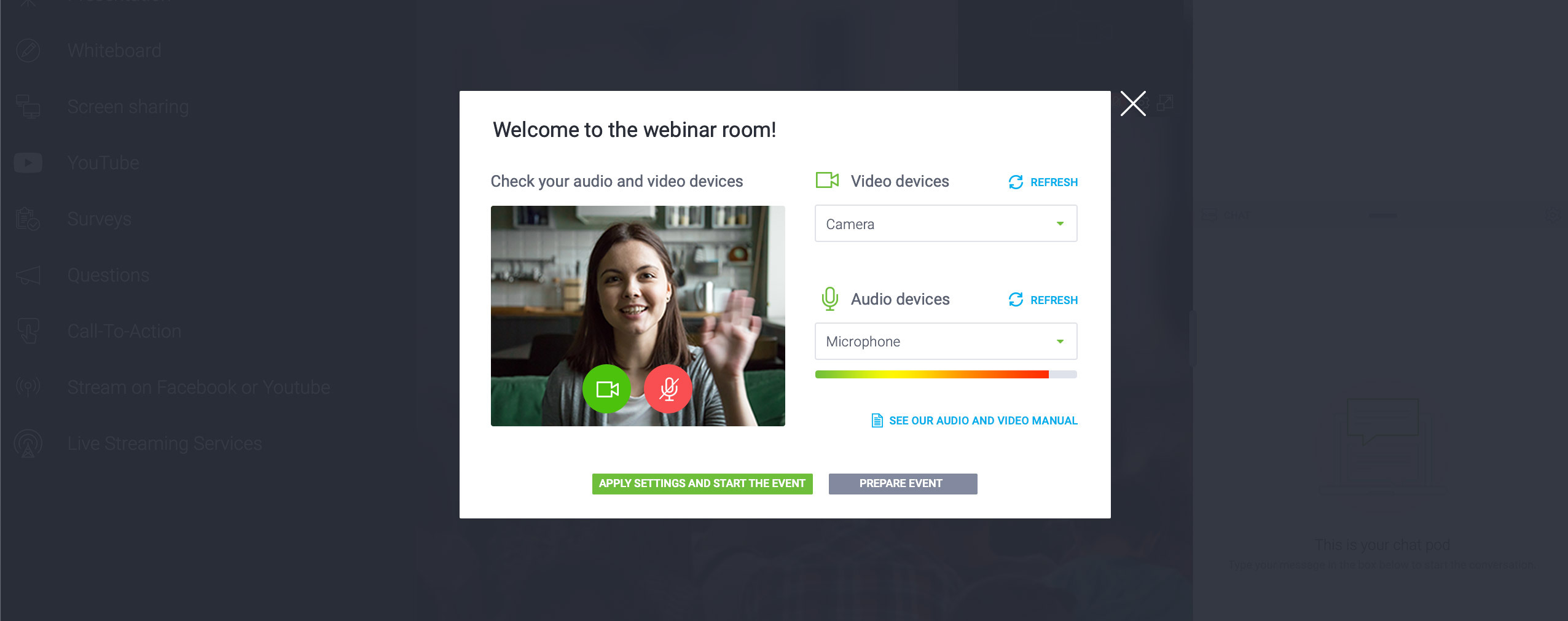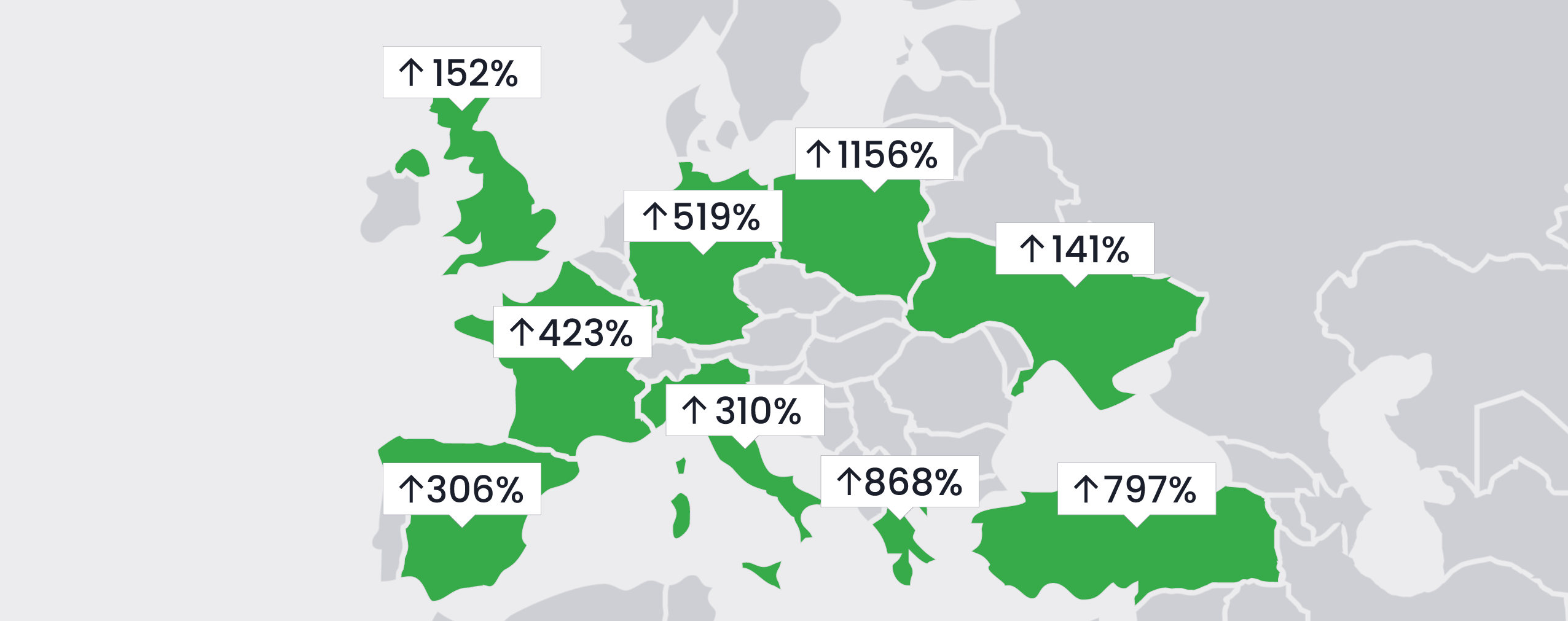Businesses around the world had to switch to a work-from-home model in no time. For many managers working with distributed teams is nothing new and scary, but for others – it can be a challenge. How to run a high-performance remote team? Let’s take a deep dive into our interview with Kaja Prystupa – Rządca, Ph.D., business trainer, TEDx speaker, and remote working ambassador.
Jakub Zieliński: What we are experiencing right now is a real explosion of terms like “remote teams” and “remote work.” Remote work enthusiasts are excited, and others remain skeptical. Which one are you?
Kaja Prystupa – Rządca: I have been working remotely for 11 years, and I would never like to change it. The truth is you need to learn how to work in such an environment and for some people it will be harder than for the others.
Chris Herd, CEO of Firstbase, claims in his article that companies that adopt remote work will replace those that don’t. Would you agree?
The possibility to work remotely has become one of the most important non-wage motivators. The younger generation expects more flexibility, autonomy, and a greater work-life balance. The remote work can fulfill all of those needs. In my opinion, more and more companies will decide to open up for remote work, especially that they experience it right now.
There are other opinions and predictions – Magda Sowierszenko published an interesting piece on Remote-How. She points out that forced lockdown in the days of the pandemic is not good news for remote work. Quoting after her: “Done inappropriately and treated as a temporary emergency solution, remote work might turn out extremely ineffective and build up further bad expectations and frustrations around this workstyle.” How would you comment on that?
I agree that it is a dangerous situation, and swift implementation of remote work can lead to many inefficiencies. In turn, it can build even more prejudices. It is a great test for everyone, especially in terms of trust and efficiency of managerial processes. If you haven’t developed them earlier (in the office), now you can find yourself in trouble. On the other side, I believe that the current discussion on how to work remotely can bring knowledge and inspiration on how to redesign your company to work remotely.
So, we’re here to find out a way to make distributed teams work at least at the same level as they were back in the office. How can a manager successfully manage a team of all remote employees?
To do so, the manager has to manage two separate areas: work processes and social aspects of team functioning. Virtual leadership is time consuming. It is estimated that it takes 50% more time to manage the team itself comparing to a collocated team. To lead successfully, you need to be a great communicator, be emphatic to your employees, and be aware of the specifics of managing in a virtual environment.
How to manage remote workers for optimal productivity? What would you advise to build high-performance virtual teams?
First of all, introduce communication rules. Decide which communication tool you want to use, when to use it, and what the expected response time is. The rules need to be clear and precise, otherwise, they may lead to misunderstandings. In effect, they will weaken trust between team members.
Secondly, decide how you want to monitor project progress. The most efficient way is to reorient yourself into a task-based style of work. Forget about focusing on time spent at the computer (for instance 8h). Analyze how many tasks have been accomplished by your team members. The application of Kanban into project progress tracking is very helpful in the remote environment. Various applications support this kind of planning (Trello, Kanbo, ect.).
Thirdly, avoid strict control like calling your employees just to check if they work, or oblige them to work with their camera on. This way, you show them you do not trust them. It is better to organize daily video calls where each team member talks about their accomplished tasks, plans, and challenges.
Fourthly, do not forget about ensuring team bonding and cohesion. In the virtual environment, it is more difficult to build bonds, and you need to put greater effort into people to socialize. Often, this element is neglected, but it is very important from the perspective of trust, to motivate to work, and to mediate the conflict.
How to create a sense of community between remote employees? In other words – how to build a remote team that works well together?
To develop a sense of community between employees, you need to make them know each other well. When you launch a new remote team, the best would be to meet face-to-face as there is no better method for socialization. However, right now, this is impossible. Therefore, organize a video call. Ensure that each employee will have time to introduce himself/herself. For instance, everyone can make a virtual walk around their place to show their working conditions. You can organize some virtual icebreakers as well. Of course, do not forget about being explicit about the goal of the team and the division of tasks and responsibilities. All team members need to be aware who is who.
Later on, organize frequent video meetings (frequency depends on the specialty of your team). You can introduce virtual coffees or virtual lunchtime reserved solely for informal chats.
What are the main downsides of hiring remote workers?
There are many challenges of remote work: worse socialization, possible losses of motivation, feelings of isolation, and a greater possibility of conflicts. Therefore, it is very important to create a virtual environment, which is engaging for employees.
What is the best way to train and onboard new employees in a remote team?
The virtual onboarding is very challenging! The main goal of onboarding is not only to transmit formal regulations but also familiarizing new employees with the norms and values of the organization. In a virtual environment, it is difficult as we do not see many cultural symbols that transmit us the meaning of norms.
For employees who need to learn know-how necessary for their job, distance learning can be challenging. Know how we learn through direct observation and mentoring. Therefore, in the virtual settings, it is necessary to have a mentor who delivers organizational best practices and teaches about values of organizational culture.
What do you think will happen after the situation in the world gets back to normal? Will we all rush back to our offices, or will remote work stand out as a more efficient way of delivering results?
I believe that most of us will rush into offices just to have some possibility of direct interaction with other employees. However, afterward, more companies will give the possibility to work at least partially remotely as from the perspective of the company it is a cost-efficient solution. Not all companies will prove to be more efficient, but I believe that it will give them some reflection on the processes within the organization.
 KAJA PRYSTUPA-RZĄDCA, PhD
KAJA PRYSTUPA-RZĄDCA, PhD
She specializes in the field of management and transformation in a virtual environment and innovation strategies. She supports people in the development of virtual communication processes and inspires to changes at the organizational level.
She teaches at post-graduate studies, Executive MBA at the Koźmiński Executive Business School. Kaja is the New Business Partner at Kirov Strategic Negotiators Sp. z o.o. and the virtual team facilitator at the Swiss company Dual Academy dealing with innovative development programs. She is the member of Professional Speakers Association.
She is the conference speaker specializing in management in virtual environment and innovation strategies. At TEDx ALK she made a speech on “5 sins against virual teams”. Kaja is the author of popular science publications, commentator for Newsweek, Rzeczpospolita, Gazeta Wyborcza, Personel I Zarządzanie, HR.news, Zwierciadło, Radio Zet, Radio TOK FM, and Holistic News.
Kaja is the author of over 30 case studies presenting Polish dynamically developing companies as part of the pioneer project of development of professional database of case studies. She was the initiator of the first Polish course devoted to virtual teams at Koźmiński University. A member of international research teams cooperating with universities from the United States, Finland and Switzerland. A member of the British Academy of Management and the European Academy of Management.








